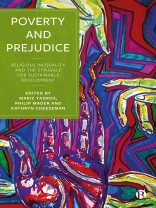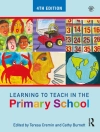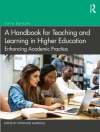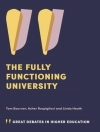EPDF and EPUB available Open Access under CC-BY-NC-ND licence.
Freedom of religion and belief is crucial to any sustainable development process, yet the Sustainable Development Goals (SDGs) pay little attention to religious inequalities.
This book offers a comprehensive overview of how efforts to achieve SDGs can be enhanced by paying greater attention to freedom of religion and belief. In particular, it illustrates how poverty is often a direct result of religious prejudice and how religious identity can shape a person’s job prospects, their children’s education and the quality of public services they receive. Drawing on evidence from Asia, the Middle East and sub-Saharan Africa, the book foregrounds the lived experiences of marginalized communities as well as researchers and non-state actors.
Содержание
1. Confronting Poverty, Prejudice and Religious Inequality: Ensuring No One Is Left Behind – Mariz Tadros, Philip Mader and Kathryn Cheeseman
Part 1: Health and Wellbeing
2. The Intersection of Religion With the Health and Wellbeing SDG – Jill Olivier
3. How the Pandemic Impacted Religious Minorities in Iraq, and How Inclusive Journalism Helped – Salam Omer
4. Religion and Confidence in COVID-19 Vaccination: The Trust Deficit – Claire Thomas, Mayya Kelova and Albashir Mohamed
5. Religious Inequality and Health: Taking the Pulse Through a Global Review of the Literature – Ghazala Mir
6. Health and Wellbeing Alongside Belief Systems at the Patient Care Coalface: How Does Policy Fit in? – Somnath Mukhopadhyay and Haitham Abul-Eis
Part 2: Education
7. Religion, Religiosity and Educational Progress – Elizabeth M. King
8. Training Iraqi Teachers To Become Effective Promoters of Fo RB Principles in Primary Education – Haidar Lapcha and Yusra Mahdi
9. Advancing Freedom of Religion or Belief Through Religiously Inclusive Education – Knox Thames
Part 3: Gender
10. Interrogating the Gender and Religious Equality Nexus – Mariz Tadros
11. Dire Conditions for Hazara Shia Pilgrims During COVID-19 Quarantine in Pakistan – Sadiqa Sultan
12. The ‘Messy’ World of Women and Religious Inequality – Kate Ward
13. Empty Chairs: Fo RB’s Gender Problem – Andrea Mari and Kathryn Cheeseman
Part 4: Water and Sanitation
14. Freedom of Religion or Belief, and Access to Safe Water – Kate Bayliss
15. How Clean Drinking Water in Joseph Colony Addresses Religious Inequalities and SDGs – Ali Abbas Zaidi and Bariya Shah
16. Why Do Religious Minorities in Pakistan Receive Less Water? – Mary Gill and Asif Aqeel
17. Drinking Water, Sanitation and the Religion Paradox in India – Nitya Jacob
Part 5: Infrastructure and the Economy
18. How Digital Discrimination Affects Sustainable Development for Religious and Ethnic Minorities – Kevin Hernandez and Becky Faith
19. Poverty, Prejudice and Technology – Nighat Dad and Shmyla Khan
20. Beyond the Rhetoric of Freedom: Religious Inequity in Nigeria – Chris Kwaja
21. Religious Identity-Based Inequality in the Labour Market: Policy Challenges in India – Surbhi Kesar and Rosa Abraham
Part 6: Inequalities
22. Religious Inequality and Economic Opportunity: Implications for SDG10 – Simone Schotte
23. The Justice Gap: Religious Minorities, Discrimination and Accountability Challenges – Claire Thomas and Mary Gill
24. Disability and Religious Inequality Intertwined: Double Discrimination Against Deaf Jehovah’s Witnesses in Uzbekistan – Dilmurad Yusupov
25. What Is Distinctive About Religious Inequality? Challenges and Opportunities for Development Policy – Michael Woolcock
Part 7: Cities and Communities
26. Religious Inequalities, Inclusive Cities and Sustainable Development – Francesca Giliberto
27. ISIS Attack on the Divinely Protected City of Mosul: The Assault of Terrorism on Diversity and Peace – Omar Mohammed
28. Renaming Places in India: Conjuring the Present by Exorcising a Past – Rachna Mehra
29. Urban Development for Religious Equality: The Case of Youhanabad in Pakistan – Amen Jaffer
Part 8: Climate and Nature
30. Religious Inequality and Environmental Change – Shilpi Srivastava and Vinitha Bachina
31. Discrimination Against Minorities and Its Detrimental Effect on Biodiversity Conservation: Lessons From the Batwa ‘Pygmies’ Around Semuliki National Park, Western Uganda – Moses Muhumuza
32. A Wounded Landscape and the Right To Protest at the River Club Site – Rifqah Tifloen
33. Climate Justice for the Religiously Marginalised – Lyla Mehta
Part 9: Peace and Justice
34. The Significance of Freedom of Religion or Belief for Peace, Justice and Strong Institutions – W. Cole Durham Jr.
35. Recovering From the Trauma of Insurgency in Northern Nigeria – Maji Peterx
36. Religion, Caste and Marginality: Reflections on the Indian Criminal Justice and Prison System – Devangana Kalita
37. Key Blindspots in Thinking Around Peacebuilding Policy Makers and Practitioners Need To Address – Katharine Thane
Part 10: Partnership
38. Partnerships and Religious Inequality – Amro Hussain
39. The Need for Secular-Religious Engagement – Kishan Manocha
40. Co-Creation for Freedom of Religion or Belief – Mike Battcock
41. Promoting Fo RB in Fragile Contexts: Emerging Lessons From CREID on Legitimacy – Mariz Tadros
42. Epilogue – Mariz Tadros, Philip Mader and Kathryn Cheeseman
Об авторе
Mariz Tadros is Professor of Politics and Development and Research Fellow at the Institute of Development Studies and Director of the Coalition for Religious Equality and Inclusive Development (CREID) programme.












